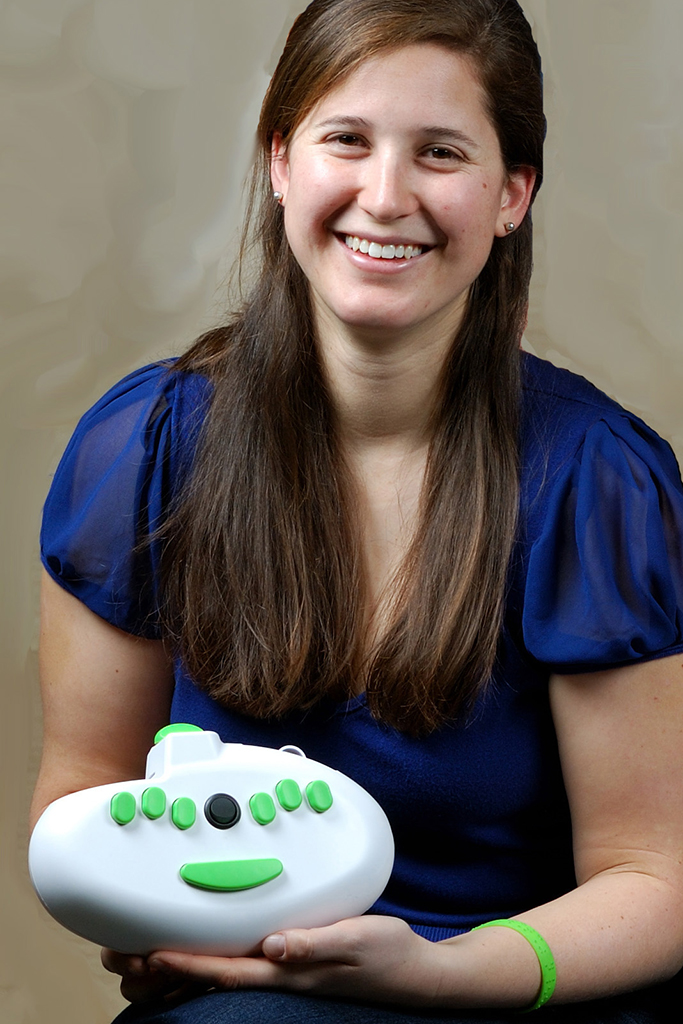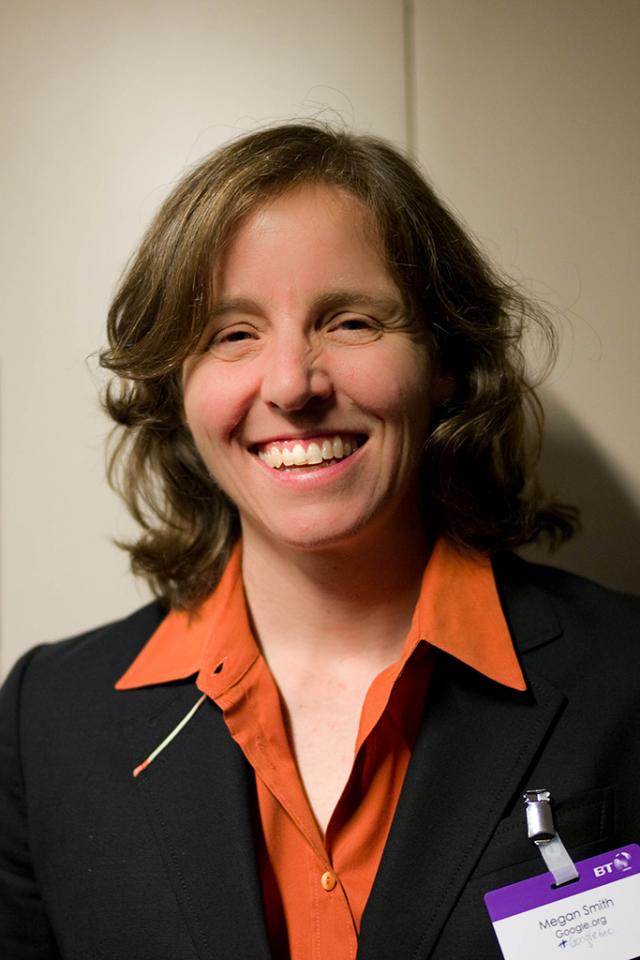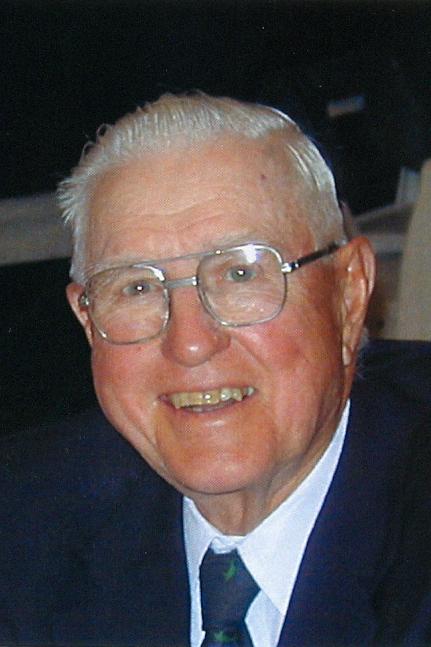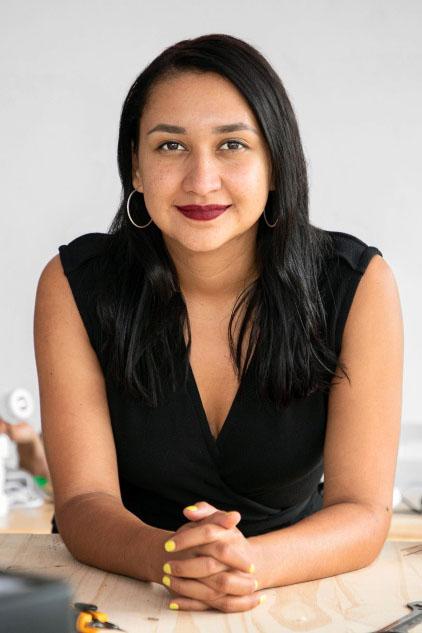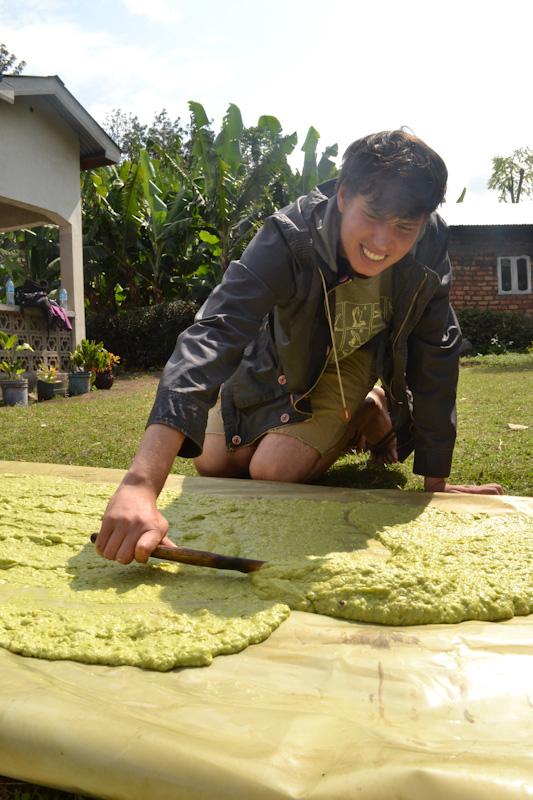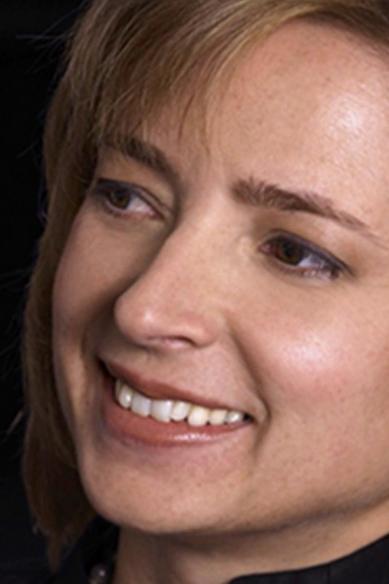Karina Pikhart
The beginnings of 6dot Innovations, an assistive technology company started by MechE alumna Karina Pikhart (SB ’09), take us back to the fall 2008 offering of Professor David Wallace’s popular course 2.009: Product Engineering Processes.
Pikhart was on a 15-member team preparing for the highly anticipated end-of-semester presentation ceremony.
That year, the 2.009 project theme was “products for the home.” Like all 2.009 teams, Pikhart’s was split into two groups that competed with each other to develop the most promising prototype for their group. Pikhart recalls that her team’s final product, the Braille Labeler, was a third idea, replacing the other two when the team’s reaction to both of them were lackluster.
“As team leader,” says Pikhart, ”I saw a spark in the team as we were discussing the labeler idea. So we took a huge leap of faith and decided to move forward with it, scrapping all the work we had done to that point. We were far behind all the other 2.009 teams because of it, but it turned out to be the best decision we could have made.”
After graduation, a handful of students from her original 2.009 team continued to work on the labeler, with Pikhart at the helm. But later she moved to the San Francisco Bay area and eventually became the only remaining member to work on the project. While earning a master’s degree in mechanical engineering from Stanford University, she decided to make her work on the Braille Labeler official and started 6dot Innovations. A year later, she recruited Robert Liebert, a graduate from Duke University with degrees in engineering and management, to join her.
The Braille Labeler – which won the Aleksander and Anna Anita Leyfell Health Innovation Award at the MIT IDEAS Global Challenge in 2009, as well as several other awards along the way, including a de Florez Competition award – is a handheld product that allows blind children and adults to print custom adhesive labels in Braille for a myriad of items, such as bottled condiments (salad dressing, mustard, chocolate syrup), appliances (microwave, washing machine), and file folders. The ergonomic and lightweight labeler offers several features that set it apart from other Braille labelers, including built-in cutting, responsive buttons, portability, a simple design, and music and math symbols. It prompted the founder and CEO of assistive technology company ProxTalker, Glen Dobbs, to call it “the only Braille labeler I’ve seen that can do what a Braille labeler should do.”
Dobbs was so impressed that last fall his company ProxTalker acquired 6dot, and hired Pikhart and Liebert as senior product development team members. The original plan was to license the labeler to ProxTalker, but, says Pikhart, “after a long series of conversations, we realized we could work really well as a team and build a future together.”
Based in Connecticut, ProxTalker was founded four years ago by Dobbs after he designed a product that enabled his autistic son Logan, who is unable to speak, a means for verbal communication using RFID technology. He then took that same RFID technology and developed a product called the Braille Coach, which can be thought of as talking flashcards for teaching Braille.
“Braille education is a really big problem,” explains Pikhart. “We observed that very early on in the development of the Braille Labeler. Only 10% of blind children are learning Braille, and about 70% of the blind are unemployed. But of the 30% who are employed, almost all of them know Braille, so there’s a huge correlation between Braille literacy and employment.”
Finally able to trade in her collection of hats for just one, Pikhart’s future is bright: She is now a vice president at ProxTalker, focusing on idea generation and product development.
“The spaces we’re working in now, called blind/low vision (B/LV) and augmentative and alternative communication (AAC), are exciting areas with a lot of opportunity for innovation. We have an amazing CEO, a real visionary, so … the sky is the limit in terms of where the business will go next.
“For me personally, it’s a dream come true.”

